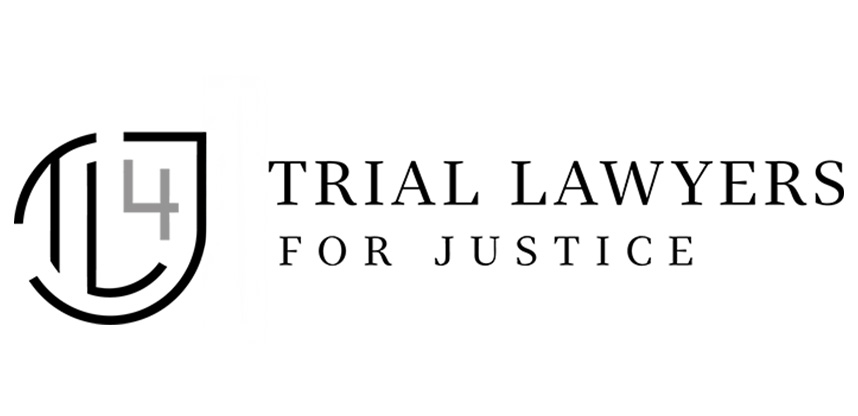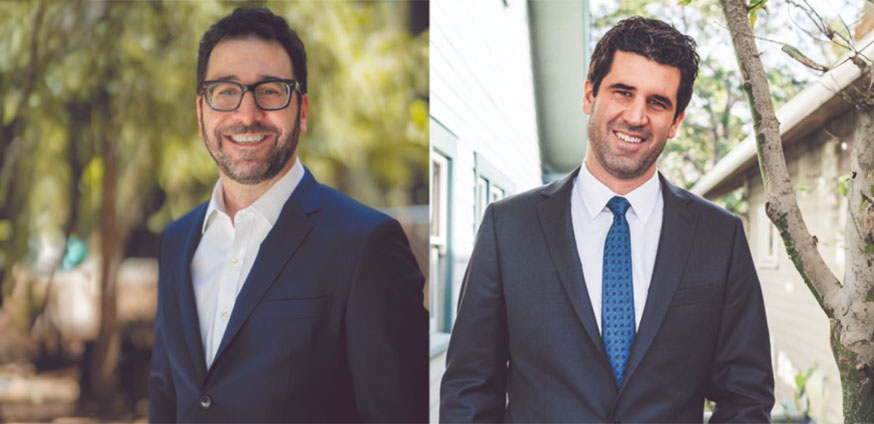View the entire article at Newsweek

A man who suffered unnecessary penis injections has been awarded the biggest ever medical malpractice payout of $412 million.
Jurors had found that fraudulent and negligent conduct by defendants NuMale Medical Center, a men’s heath clinic operating in several states, resulted in irreversible damage to the plaintiff.
The man, now in his 70s, had sought treatment for fatigue and weight loss, but the clinic misdiagnosed him and unnecessarily treated him with “invasive erectile dysfunction,” shots, said attorneys who celebrated Monday’s verdict.
The lawyers said they are hopeful the giant payout will prevent other men from falling victim to a scheme that involved fraud and what they described as dangerous penile injections. They added that the punitive and compensatory damages total the largest amount to ever be awarded by a jury in a medical malpractice case in the U.S.
“It’s a national record-setting case and it’s righteous because I don’t think there’s any place for licensed professionals to be defrauding patients for money. That is a very egregious breach of their fiduciary duty,” said Lori Bencoe, one of the lawyers who represented the plaintiff.
“That’s breach of trust and anytime someone is wearing a white coat, they shouldn’t be allowed to do that.”
Newsweek has reached out to Bencoe Law via email for comment.
NuMale has clinics in Colorado, Florida, Illinois, Nevada, Nebraska, North Carolina, and Wisconsin. Newsweek has reached out to NuMale medical via email for comment.
The giant award follows a trial held in Albuquerque earlier this month which focused on allegations first outlined in a 2020 lawsuit.
Nick Rowley, one of the attorney’s on the plaintiff’s team said that the medical corporation set up a “fraudulent scheme to make millions off of conning old men.”
The plaintiff in this case was 66 when he visited the clinic in 2017.
Rowley said on social media that clinic workers had told patients they would have irreversible damage if they did not agree to injections three times per week.
Newsweek has reached out to The Rowley Law Firm for comment.
On their website, NuMale advertises multiple treatments for erectile dysfunction, including Trimix injections. Their website states that the injections are “typically compounded in specialized pharmacies, which means they are mixed according to a doctor’s prescription tailored to the needs of the patient
The medication is administered with an injection, where the patient uses a fine needle to inject the medication directly into the base or side of the penis.”
NuMale Medical Center President Brad Palubicki said in a statement sent Wednesday to The Associated Press that the company’s focus is on continuing to deliver responsible patient care while maintaining strict safety and compliance standards at all of its facilities.
“While we respect the judicial process, due to ongoing legal proceedings, we cannot comment on specific details of the case at this time,” he said.
This article includes reporting from The Associated Press.
View the entire article at Newsweek

A man in New Mexico has been awarded the biggest medical payout in history after doctors ‘irreversibly’ damaged his penis.
The patient, who has not been named, was conned into having unnecessary injections into his genitals by a clinic that preyed on elderly men.
He can no longer get an erection and must sit down to urinate because his penis has become enveloped in thick scar tissue.
The victim, who was 66 at the time, had visited NuMale Medical Center in Albuquerque in 2017 seeking treatment for fatigue and weight loss.
According to a lawsuit filed in 2020, the man was coaxed into getting ‘invasive erectile dysfunction shots’ to his penis multiple times per week.
The lawsuit claims the injections caused permanent damage to the man’s penis.
Lawyers representing the plaintiff said: ‘His impotence is permanent and the damage is completely irreversible.’
This week, after a four-year legal battle, the now 72-year-old was awarded $412million in damages, the largest medical malpractice payout from a jury in US history.
The second biggest was in 2006, when former basketball player Allan Navarro was awarded $216.7million after doctors in Florida misdiagnosed his stroke as a headache, leaving him with brain damage.
Lori Bencoe, one of the lawyers who represented the plaintiff, said: ‘It’s a national record-setting case and it’s righteous because I don’t think there’s any place for licensed professionals to be defrauding patients for money. That is a very egregious breach of their fiduciary duty.
Nick Rowley, another attorney representing the man, said on Instagram that the man was sent home with a ‘dangerous chemical’ injected into his penis and was not given an antidote.
It’s unclear which chemicals were used in the injections.
The award follows a trial that took place last month based on the lawsuit filed on behalf of the man in 2020. NuMale did not admit wrongdoing and did not comment on the findings.
Mr Rowley said patients were told that they had to have at least three shots per week or they would suffer irreversible harm.
Brad Palubicki, NuMale Medical Center President, told the Associated Press that the company’s focus is on continuing to deliver responsible patient care while maintaining strict safety and compliance standards at all of its facilities.
He said: ‘While we respect the judicial process, due to ongoing legal proceedings, we cannot comment on specific details of the case at this time.’
NuMale also has clinics in Colorado, Florida, Illinois, Nevada, Nebraska, North Carolina and Wisconsin.
Its Albuquerque clinic specializes in erectile dysfunction and testosterone replacement, as well as weight loss and hair replacement, according to the website.
The company was launched in 2013 and claims to treat over 100,000 patients.
The Albuquerque clinic has an average of 4.4 stars out of 54 Google reviews.
Erectile dysfunction injections are meant to relax muscles in the penis and open up blood vessels, leading to increased blood flow and erections. They typically work within five to 15 minutes.
View the entire article at Daily Mail
“While we respect the judicial process, due to ongoing legal proceedings, we cannot comment on specific details of the case at this time,” he said.
NuMale also has clinics in Colorado, Florida, Illinois, Nevada, Nebraska, North Carolina and Wisconsin.
According to court records, jurors found that fraudulent and negligent conduct by the defendants resulted in damages to the plaintiff. They also found that unconscionable conduct by the defendants violated the Unfair Practices Act.
View the entire article at CNN
The lawyers said their client went through multiple rounds of medication and procedures, and he underwent surgery by an unqualified physician assistant.
In a statement, the attorneys said this unprecedented verdict sends a powerful message that “medical providers cannot prioritize profits over patients’ well-being without being held accountable.”
NuMale Medical Center told KRQE News 13 that they “disagree with the verdict and intent to pursue all available legal remedies, including appeal.”
View the entire article at Albuquerque News
View the entire article at KOB

Toxic tort cases where plaintiffs’ injuries arose decades ago are notoriously difficult to prove and win. But attorneys from Ernst Law Group APC and Trial Lawyers for Justice — enduring what one called “scorched earth litigation” from a deep pockets defendant now owned by Chevron Corp. — prevailed and obtained a $63 million jury award for a man who developed cancer more than 25 years after living over an old oilfield sump pit.
The award included $41 million in punitive damages. Making matters harder for the plaintiff’s lawyers was the complication that their client’s multiple myeloma was in remission at the time of the 23-day trial. Wright v. Union Oil Co. of California, 21CV00925 (S. Barbara Sup. Ct., filed March 8, 2021).
“We had to work for our facts. They didn’t want to give us any discovery. They violated court orders,” said M. Taylor Ernst, the founder of San Luis Obispo’s Ernst Law Group, who brought on Trial Lawyers for Justice to try the case. Co-counsel Brian J. Ward, of Trial Lawyers for Justice’s Ventura office, said that along with seeking justice for client Kevin Wright, the team was motivated by a wish to document the history of the oil and gas industry’s abuse of California’s environment.
“And that’s what we did,” Ward said. “Going deep into the history books we found our client’s injury came at the epicenter of the industry that began in the 1890s in the Santa Maria oil fields. We treated the courtroom like a public square where we could expose an industry that has long ducked accountability here.”
Joining Taylor Ernst and Ward were Don A. Ernst and Terry J. Kilpatrick of Ernst Law Group and Erin L. Powers of Trial Lawyers for Justice. That firm’s Jakob Z. Norman of Bozeman, Mont., was also on the team. They faced off with defense lawyers from Alston & Bird LLP and King & Spaulding LLP.
At one point early in the trial the defense violated a court ruling they’d sought that barred use of the term “big oil.” Ward said, “So they started out by saying, ‘Who has a problem with big oil?” Superior Court Judge James F. Rigali asked the plaintiffs if they wanted a new trial. “We declined, based on our faith and pride in our case,” Ernst said.
He likened the trial to a war. “There was no mediation. There was no high low agreement. There was no settlement conference.” The defense offered $50,000 to end the case, he said. Cross-appeals are in progress.
Wright had lived on the contaminated premises for two years and was diagnosed 27 years later with a cancer known to be associated with benzene exposure. The defense denied everything, and the court excluded evidence that Chevron had made remedial efforts to clean the property in 2016.
The plaintiff team found old aerial photos of the oil field showing the location of a chemical sump pit the size of an Olympic swimming pool — “literally underneath our client’s bedroom,” Ernst said. After the trial’s liability phase, Ward said the team was uncertain about quantifying punitives. “But the jury found a way. They made it a million dollars for every year the place went without a cleanup.”
–John Roemer
View the entire article at Daily Journal